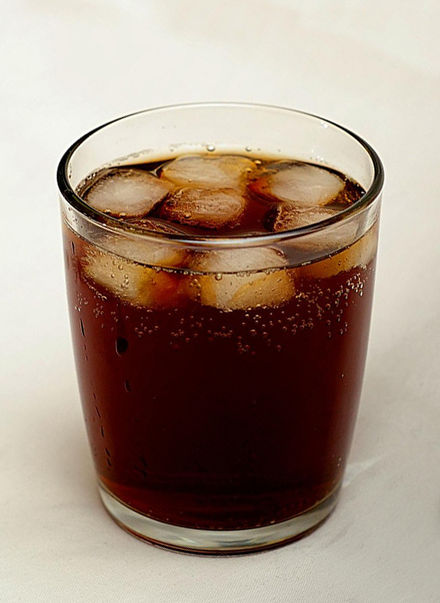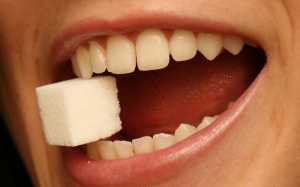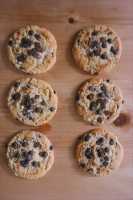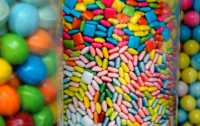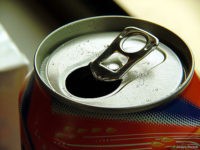Author Interviews, JAMA, Nutrition, Sugar / 12.01.2024
Taxes on Sugary Drinks Linked to Higher Prices and Fewer Purchases
MedicalResearch.com Interview with:
 Scott Kaplan PhD
Assistant Professor of Economics
United States Naval Academy
Annapolis, MD 21402
MedicalResearch.com: What is the background for this study?
Response: Sugar-sweetened beverages (colloquially known as SSBs), which include sodas, fruit drinks, sports drinks, energy drinks, and sweetened coffee drinks, are the leading source of added sugars in the American diet, according to the CDC. They are associated with serious negative health outcomes, including type 2 diabetes, obesity, heart disease, kidney disease, non-alcoholic liver disease, gum disease, tooth decay, and other conditions.
As a result, several cities across the US have implemented sugar-sweetened beverage excise (per ounce) taxes, generally ranging from 1-2 cents per ounce. Most existing studies evaluating the impact of SSB taxes on SSB volume purchased and prices focus on a single city; this study is among the first to provide a composite estimate of the impact of local SSB taxes on purchases and prices of SSBs using retail scanner data from five cities across the US that implemented SSB taxes between January 1, 2017 and January 1, 2018. The five taxed cities we examine are Philadelphia, San Francisco, Oakland, Boulder, and Seattle.
(more…)
Scott Kaplan PhD
Assistant Professor of Economics
United States Naval Academy
Annapolis, MD 21402
MedicalResearch.com: What is the background for this study?
Response: Sugar-sweetened beverages (colloquially known as SSBs), which include sodas, fruit drinks, sports drinks, energy drinks, and sweetened coffee drinks, are the leading source of added sugars in the American diet, according to the CDC. They are associated with serious negative health outcomes, including type 2 diabetes, obesity, heart disease, kidney disease, non-alcoholic liver disease, gum disease, tooth decay, and other conditions.
As a result, several cities across the US have implemented sugar-sweetened beverage excise (per ounce) taxes, generally ranging from 1-2 cents per ounce. Most existing studies evaluating the impact of SSB taxes on SSB volume purchased and prices focus on a single city; this study is among the first to provide a composite estimate of the impact of local SSB taxes on purchases and prices of SSBs using retail scanner data from five cities across the US that implemented SSB taxes between January 1, 2017 and January 1, 2018. The five taxed cities we examine are Philadelphia, San Francisco, Oakland, Boulder, and Seattle.
(more…)
 Scott Kaplan PhD
Assistant Professor of Economics
United States Naval Academy
Annapolis, MD 21402
MedicalResearch.com: What is the background for this study?
Response: Sugar-sweetened beverages (colloquially known as SSBs), which include sodas, fruit drinks, sports drinks, energy drinks, and sweetened coffee drinks, are the leading source of added sugars in the American diet, according to the CDC. They are associated with serious negative health outcomes, including type 2 diabetes, obesity, heart disease, kidney disease, non-alcoholic liver disease, gum disease, tooth decay, and other conditions.
As a result, several cities across the US have implemented sugar-sweetened beverage excise (per ounce) taxes, generally ranging from 1-2 cents per ounce. Most existing studies evaluating the impact of SSB taxes on SSB volume purchased and prices focus on a single city; this study is among the first to provide a composite estimate of the impact of local SSB taxes on purchases and prices of SSBs using retail scanner data from five cities across the US that implemented SSB taxes between January 1, 2017 and January 1, 2018. The five taxed cities we examine are Philadelphia, San Francisco, Oakland, Boulder, and Seattle.
(more…)
Scott Kaplan PhD
Assistant Professor of Economics
United States Naval Academy
Annapolis, MD 21402
MedicalResearch.com: What is the background for this study?
Response: Sugar-sweetened beverages (colloquially known as SSBs), which include sodas, fruit drinks, sports drinks, energy drinks, and sweetened coffee drinks, are the leading source of added sugars in the American diet, according to the CDC. They are associated with serious negative health outcomes, including type 2 diabetes, obesity, heart disease, kidney disease, non-alcoholic liver disease, gum disease, tooth decay, and other conditions.
As a result, several cities across the US have implemented sugar-sweetened beverage excise (per ounce) taxes, generally ranging from 1-2 cents per ounce. Most existing studies evaluating the impact of SSB taxes on SSB volume purchased and prices focus on a single city; this study is among the first to provide a composite estimate of the impact of local SSB taxes on purchases and prices of SSBs using retail scanner data from five cities across the US that implemented SSB taxes between January 1, 2017 and January 1, 2018. The five taxed cities we examine are Philadelphia, San Francisco, Oakland, Boulder, and Seattle.
(more…)
